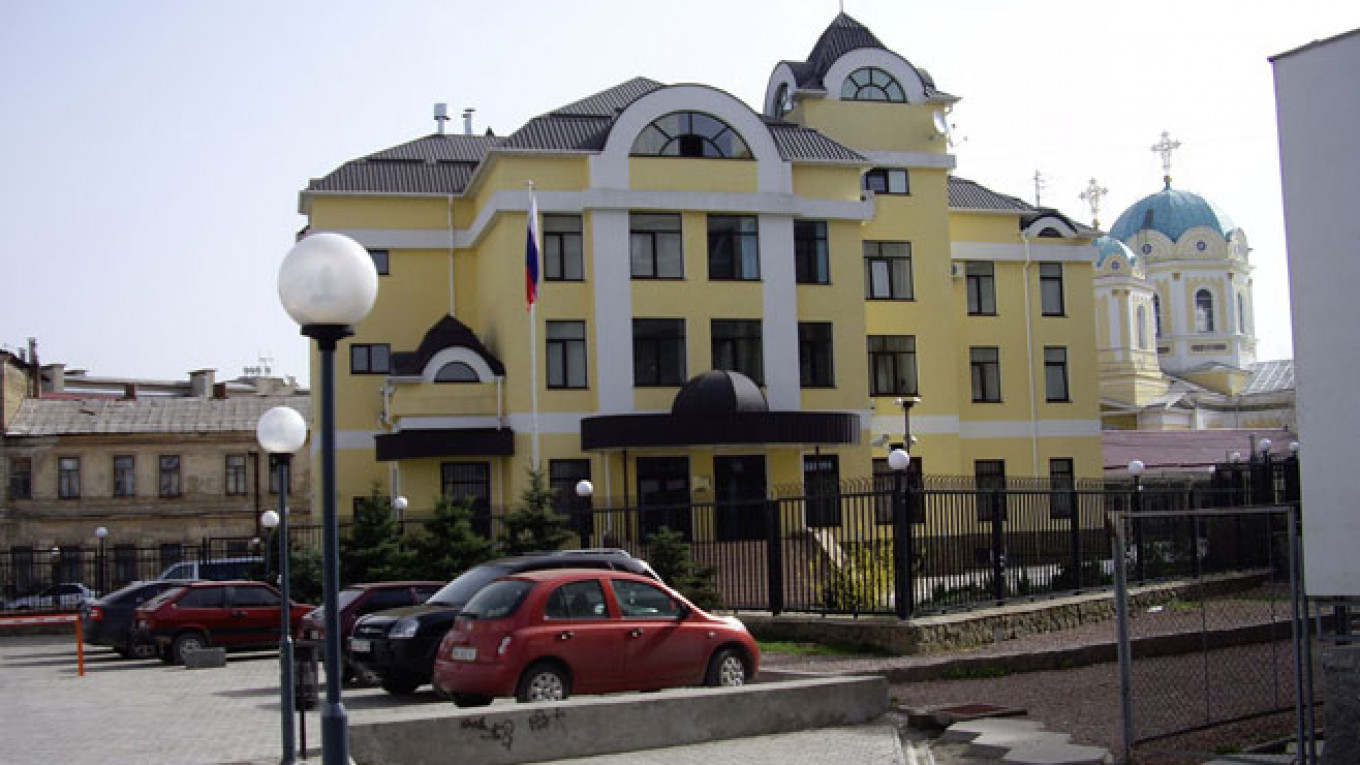Western journalists reporting from Crimea and Sevastopol may have to apply for Russian visas starting Thursday, when the State Duma is expected to ratify the treaty on Russia's annexation of the Ukrainian territories. But for now, foreigners are allowed to be in the region without a visa, Russian authorities said.
By Russian law, foreigners from most nations outside the former Soviet Union, including European Union member countries and the U.S., have to obtain visas to work in Russia by applying to a Russian consulate abroad. It remained unclear as of Wednesday when and how Western citizens based in Crimea and Sevastopol would have to apply for Russian visas.
A spokesman at Russia's Consulate General in the Crimean regional capital of Simferopol said that the consulate was no longer dealing with visas for foreigners and that they would have to apply to Russia's Federal Migration Service.
But for a transition period, which will last an undetermined length of time, foreigners can stay in Crimea and Sevastopol without a Russian visa, the consulate spokesman said.
A spokesman at the Foreign Ministry redirected an inquiry from The Moscow Times to the Federal Migration Service, where another spokesman said the agency's employees were so far unaware of what the procedure would be.
President Vladimir Putin signed the treaty on the annexation of Crimea and Sevastopol to Russia after almost 97 percent of local residents voted in favor of it in a referendum on Sunday. Western countries did not recognize the vote, calling it illegitimate.
A Message from The Moscow Times:
Dear readers,
We are facing unprecedented challenges. Russia's Prosecutor General's Office has designated The Moscow Times as an "undesirable" organization, criminalizing our work and putting our staff at risk of prosecution. This follows our earlier unjust labeling as a "foreign agent."
These actions are direct attempts to silence independent journalism in Russia. The authorities claim our work "discredits the decisions of the Russian leadership." We see things differently: we strive to provide accurate, unbiased reporting on Russia.
We, the journalists of The Moscow Times, refuse to be silenced. But to continue our work, we need your help.
Your support, no matter how small, makes a world of difference. If you can, please support us monthly starting from just $2. It's quick to set up, and every contribution makes a significant impact.
By supporting The Moscow Times, you're defending open, independent journalism in the face of repression. Thank you for standing with us.
Remind me later.






